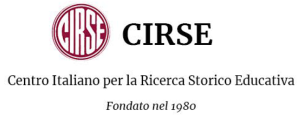Call for Papers
Workshop: The rise of education across European regions in the last two centuries (extended deadline)
Pubblicato il | Call for Papers

Workshop venue and dates: University of Groningen, January 20-21, 2020. Deadline for submitting a 500-word abstract: extended to September 30th, 2020 As W. E. Marsden (1977) noted in his seminal paper on geography and the history of education, the diffusion of education is unevenly distributed in space and thus marked by local and regional inequalities. Economic historians have increasingly taken advantage of such variation across places to examine (i) the impact of education on economic development, (ii) the determinants of schooling and human capital – while raising important questions regarding the role of religion, landownership and political voice, industrialization and institutional reforms. In other contexts, historians and historians of education have explored regional variations in schooling through analyses of national politics of standardization and homogenization, and in studies of the local and regional contexts of education, shedding further lights on the complex settings that enabled the rise of mass schooling. Although scholars in each field have taken important steps forward, there remains a lack of true interdisciplinary work on the local and regional variations of schooling. The aim of this workshop is to promote such work, and to provide a platform where quantitative and qualitative contributions may inform each other. The main focus of the workshop will be the rise of primary and secondary education across European regions in the last two centuries, even though we also welcome contributions on different historical periods and world regions. More specifically, we encourage submissions from a broad range of disciplines that shed light on fundamental aspects of regional variation in schooling, its determinants and impact on social and economic development. These includes: 1. The spatial distribution of education (in terms of schools, enrolment levels, child-teacher ratios, absenteeism etc.) 2. Economy and the demand for schooling 3. Demography and education 4. Education reform and regional differences 5. School finance and teacher salaries 6. Gender educational inequality 7. The local history of schooling Please send an extended abstract (c. 500 words) toQuesto indirizzo email è protetto dagli spambots. È necessario abilitare JavaScript per vederlo. by September 30th, 2020. NB: although the conference had been planned in situ, the meeting might be eventually moved online or postponed, due to the uncertainty linked to the resurgent COVID-19 crisis. Francisco J. Beltrán Tapia Gabriele Cappelli Alfonso Díez Minguela Julio Martínez-Galarraga Daniel Tirado Johannes Westberg
